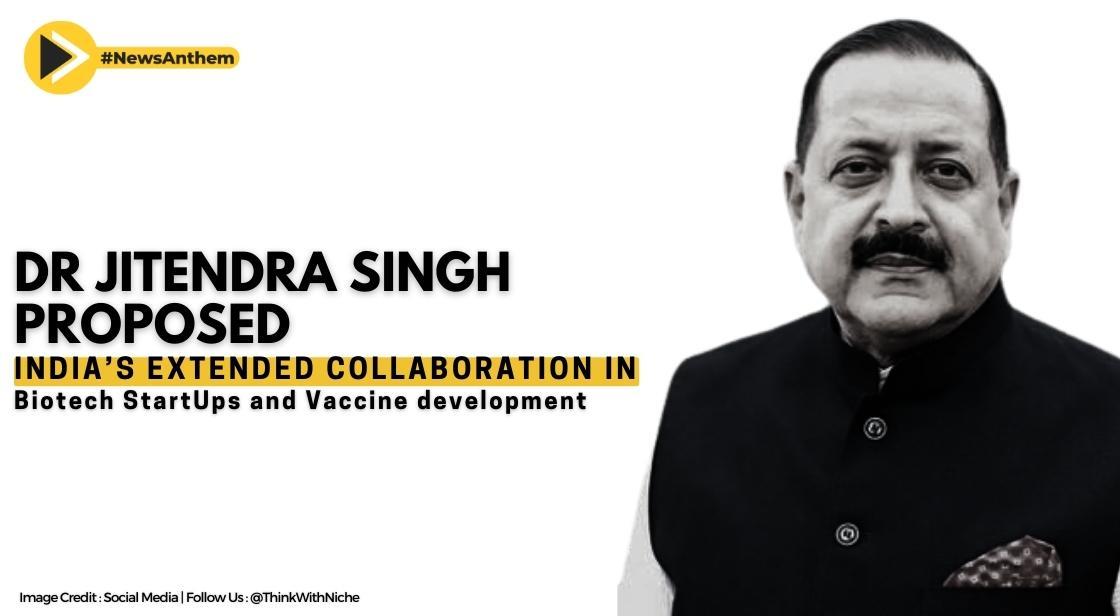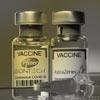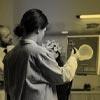Dr Jitendra Singh Proposed India’s Extended Collaboration In Biotech StartUps And Vaccine Development In PPP

News Synopsis
Dr. Jitendra Singh, Union Minister of State (Independent Charge) Science and Technology; Minister of State (Independent Charge) Earth Sciences; and Minister of State (Independent Charge) Personnel, Public Grievances, Pensions, Atomic Energy, and Space, today proposed India's extended collaboration in Biotech StartUps and Vaccine Development in Public Private Partnership for Global Good.
Speaking to Dr. Mark Feinberg, President and CEO of IAVI (The International AIDS Vaccine Initiative), and Rajat Goyal MD, Country Director, India, IAVI, who paid him a visit at the North Block here with a high-profile delegation, the Minister urged for concrete proposals and guidance in developing Sustainable StartUps for long-term sources of income.
Dr. Jitendra Singh stated that India is quickly emerging as the world's leading bio-economy and that it has expanded by leaps and bounds in terms of innovation and technology in recent years. In only two years, India has developed four indigenous vaccines, he said.
The Minister went on to say that the Department of Biotechnology (DBT) in the Ministry of Science and Technology, through "Mission COVID Suraksha," delivered four vaccines, expanded Covaxin manufacturing, and built the infrastructure needed for the smooth development of future vaccines, ensuring that our country is pandemic-ready.
According to Dr. Mark Feinberg, President and CEO of IAVI, his organisation is a global non-profit, public-private collaboration seeking to speed the development of vaccines to prevent HIV infection and AIDS. He did, however, add that owing to the elimination of HIV, IAVI is collaborating with India on the development of a tuberculosis vaccine.
Dr. Jitendra Singh stated that the Indian vaccine business, which has established itself on a worldwide scale, is likely to reach Rs 252 billion by 2025.
The following are the primary initiatives and research projects launched as a result of the DBT-IAVI partnership:
South Africa-India Bilateral collaboration, which began in 2011, has resulted in the following major outcomes: Phase I of the cooperation (2011-2016) brought together seven separate Centres of Research Excellence in India and South Africa. 1 Indian researcher in South Africa and 3 South African researchers in India received training in next-generation technologies. Transfer of technology in two important technological approaches: yeast surface display and surface plasmon resonance. Sharing of knowledge, data, and resources for comparative study-Exchange of biological specimens, sharing of research materials, reagents, and procedures, and an interdisciplinary approach concentrating on region-specific requirements while contributing to global knowledge.
Dr. Jitendra Singh stated that during the Phase II collaboration (2017-to-date), 8 CoEs were established across India and South Africa, including 5 new CoEs in Phase II, 3 South African researchers were trained in India, Indian researchers were trained by South African researchers on Tandem Mass Spectrometry, and the first TDM lab for TB drugs was established in India at P.D. Hinduja Hospital. Transfer of technology to South Africa for environmental purification and MIC testing, exchange of protocols from South Africa to India for skin pigmentation evaluation Exchange of virus sequences and bnAbs between Indian and South African labs - Most clinically advanced bnAb (CAP256.VRC26.25 mAb) shared by SA to India, 15 peer-reviewed journal publications, 1 patent granted in South Africa for novel engineered immunogen from Indian HIV-1 C (THSTI & YRGCARE), The neutralisation assays representing circulating HIV-1 viruses in India and South Africa, developed under this collaboration, are being used for
On July 7, 2005, DBT, New Delhi, and IAVI signed a Memorandum of Understanding (MoU) for collaborative research and development in the evaluation of one or more safe and efficacious AIDS vaccines, which was later extended until July 2020.
You May Like









